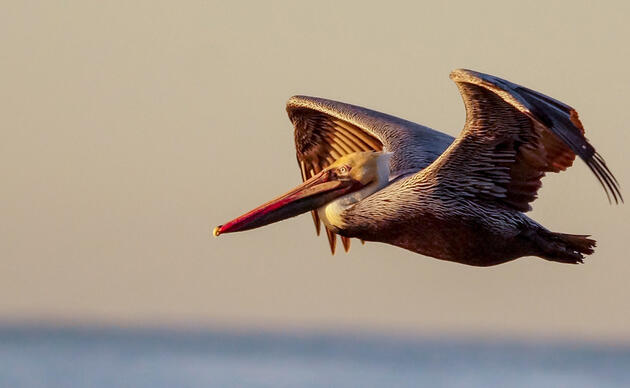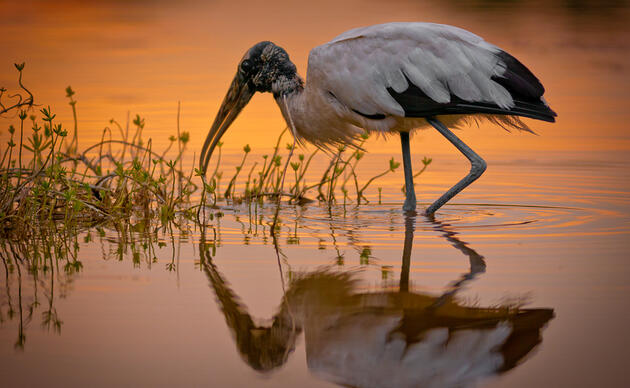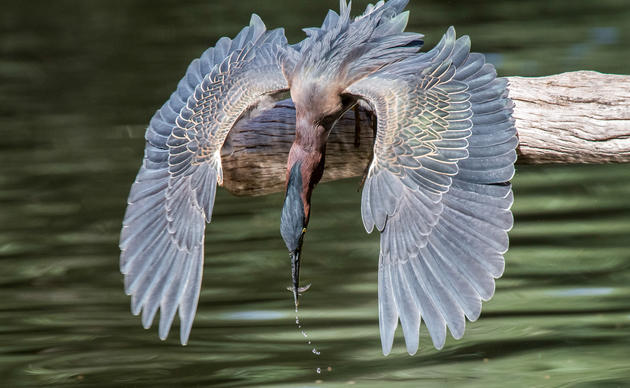Audubon Shorebird Stewards kicked off the 2022 spring and summer season in mid-March, attending trainings and gearing up to see the return of Red Knots, Wilson’s Plovers, Least Terns, and many other species to South Carolina. The number one goal of our passionate volunteers is to prevent human disturbance to coastal birds by ensuring they have enough space to rest, refuel, and raise their young. We have many success stories to share from this season, and they all demonstrate the dedication of Audubon South Carolina’s (ASC) volunteers, staff, and partners, and the positive effects our collective efforts have on coastal birds. Read the full Coastal Stewardship report here!
Volunteer Achievements
This year, our cadre of volunteers surpassed last year’s record for hours served! In total, 454 people attended an in-person or virtual 2-hour training with 124 of those trained going on to serve shifts on 12 beaches along the coast, accumulating 3,641 volunteer hours. These hours include time that volunteers spent monitoring nesting/migratory species and conducting human disturbance surveys. Based on the 260 reports submitted by 60 volunteers after their shifts on the beach throughout the season, Stewards interacted with about 3,743 beachgoers, noting 321 leashed dogs and 138 unleashed dogs near nesting areas. Other common disturbances observed were drones, boats, and low-flying helicopters near nesting sites.
Bird Monitoring and Rare Bird Observations
Many volunteers are also skilled birders who help keep track of what species are nesting in South Carolina by monitoring their progress throughout the summer. Based on these observations along with those of ASC staff, 12 Wilson’s Plover nests, 3 American Oystercatcher nests, and 7 Least Tern colonies all fledged chicks this summer. Flocks of thousands of Red Knot, a federally threatened species, were observed at their Kiawah/Seabrook Island and Harbor/Hunting Island stopovers with several smaller flocks scattered along the coast. Additionally, this year volunteers and ASC staff participated in the first statewide Red Knot survey along the Georgia and South Carolina coasts, led by South Carolina and Georgia’s Departments of Natural Resources. Piping Plovers, another federally threatened/endangered species, were also spotted at Stewardship Sites. Other rare bird sightings from this season include the Eurasian Ruff, Magnificent Frigatebird, Black Tern, Sooty Tern, and a Crested Cara Cara!
Human Disturbance Project
ASC participated in the Atlantic Coast Human Disturbance Project this season, in collaboration with Virginia Tech’s Dayer Human Dimensions Lab. As part of this project, we implemented two social marketing campaigns at Harbor Island and Folly Beach’s Lighthouse Inlet Heritage Preserve. Dedicated volunteers at both sites led efforts to implement the campaigns and collect data on their effectiveness. At Harbor Island, volunteer leader Peggy Lucas taught young beachgoers and their families how to respect nesting bird areas. And at Folly Beach Lighthouse Inlet, artist Tennyson Corley, with help from her family and ASC staff, created an art installation to inspire people to walk the waterline (away from the nesting area). Learn more about this project here!
Crab Bank’s Inaugural Season Post-Restoration
This multi-partner, multi-year restoration project saw its first successful nesting season this summer, with 524 nests from Gull-billed Terns, Least Terns, American Oystercatchers, and Black Skimmers! ASC led stewardship efforts and helped reroute and report any violations of boats landing on the island. Read more about this project and follow its updates at this site.
Morris Island Least Tern Colony
In South Carolina, Least Terns have adapted to a loss of natural nesting habitat by nesting in non-natural areas, like gravel rooftops. This makes all remaining natural habitat that much more important. When Shorebird Steward and eco-tour operator Chuck Gainey was on Morris Island this spring, he noticed courting and nesting behaviors from a group of Least Terns. While this is not abnormal that time of year, Morris Island had not supported a colony of Least Terns since 2017, when the colony failed due to overwash. Before that, a 2010 colony also tried to nest and suffered overwash. By the end of this summer, after many weekends of volunteers and staff stewarding the colony, 29 chicks fledged!
Festive Fireworks
Shorebird Stewards, Diane Troy and Laura Lovins worked together with South Carolina Department of Natural Resources (SCDNR), ASC, the Town of Isle of Palms (IOP) and the IOP Turtle Team to make the nesting Least Tern colony on Isle of Palms a little more festive. After learning of plans for a public fireworks show further down the beach, these dedicated volunteers alongside Mary-Catherine Martin (SCDNR), led the charge to ensure the colony was safe by installing temporary festive signage and having all hands on deck that evening to ensure folks stayed far from the newly hatched chicks while enjoying the show.
Out of this State Stewarding
Cheryl Rizzo, a resident of Pennsylvania, heard about the need for Shorebird Steward volunteers in South Carolina and felt compelled to help. She travelled south to Huntington Beach State Park to enjoy a morning shift with veteran Steward, Jeri Reuss, who showed Cheryl the ropes and pointed out some species Cheryl had never seen—including nesting Wilson’s Plovers! We sincerely thank Cheryl and her husband for their time and dedication!
Amazing Photographers
Shorebird Stewards get the opportunity to enjoy the beach, sometimes before the crowds pick up. Stewards with a knack for photography use this time to capture some unique moments of birds caring for their chicks and relaxing in the sand. We’re happy to share these awesome photos, especially because these photographers are educated on the importance of keeping their distance from coastal birds and not interrupting their natural behaviors for the sake of a photo. Check them all out in the full report!








